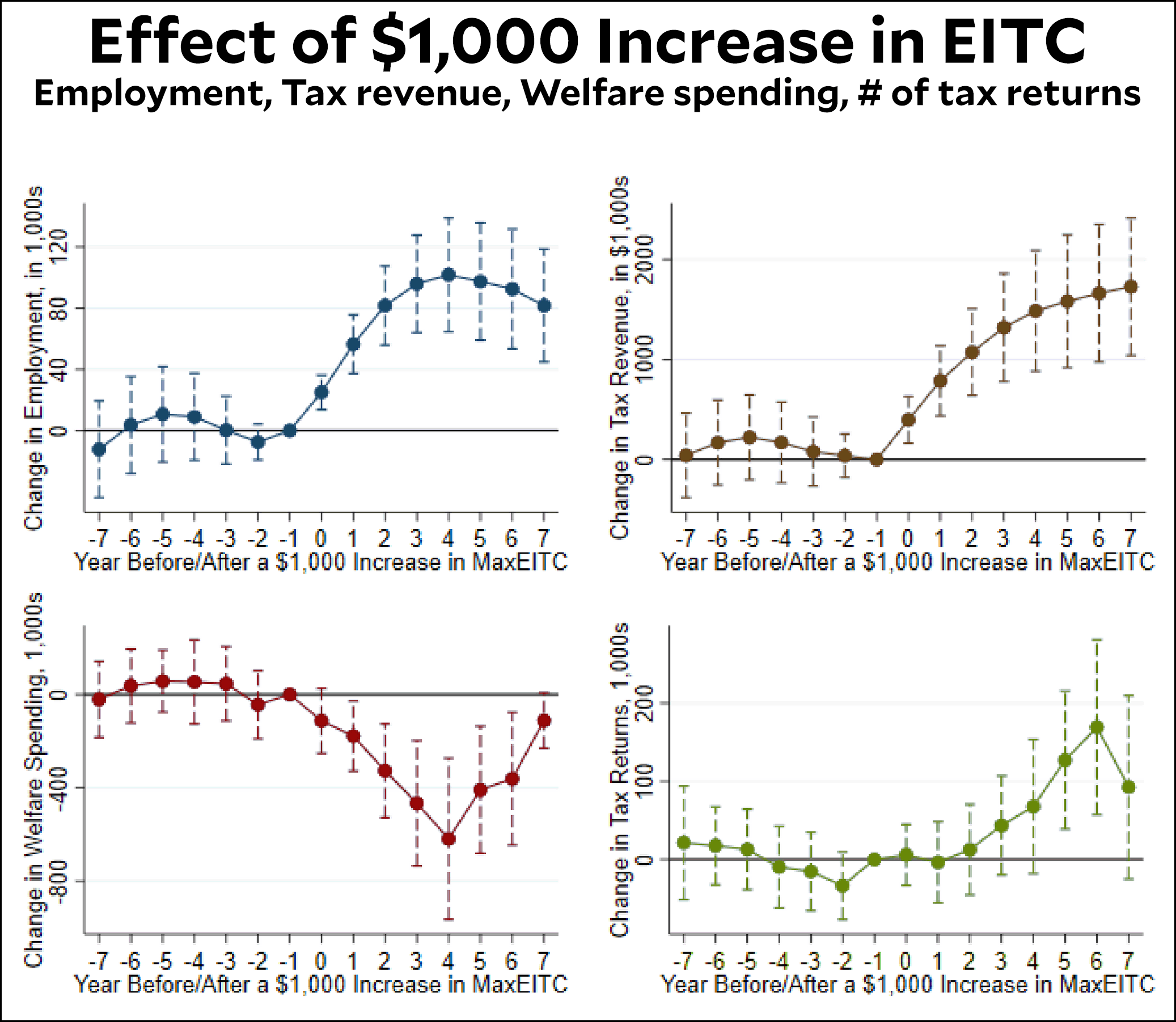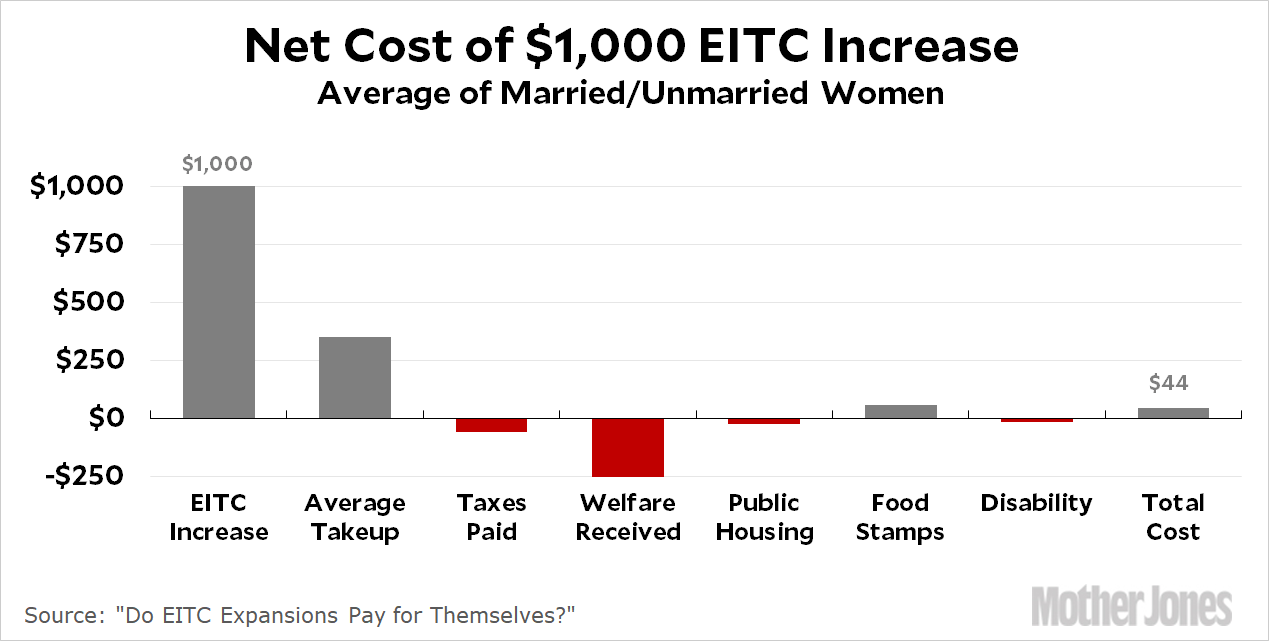The Earned Income Tax Credit is, in theory, everyone’s favorite form of social welfare. It’s plain old money that recipients can spend on whatever they want, but it’s only available to people who have a job and file income taxes. Thus, it encourages work and provides help to people who are really trying to claw their way out of poverty.
But in recent years, conservatives have decided they don’t like the EITC so much after all. Sure, Milton Friedman liked it and Ronald Reagan liked it, but that was a long time ago. For today’s movement conservatives, it’s just more welfare money that’s funded out of higher taxes on rich people, and they have a lot less tolerance for that than old-school conservatives did.
But perhaps they should rethink this. Reihan Salam points me to a job market paper by Jacob Bastian, a postdoc at the University of Chicago, and Maggie Jones of the Census Bureau, which suggests that the EITC costs a lot less than anyone thinks. Back in the old days of blogging we used to call the key finding of a piece the “nut graf,” but in this case I think we have a nut chart. Here it is:

Bastian and Jones find that an increase in the EITC leads to higher employment, higher tax revenue, and reduced spending on other welfare programs. Here’s how that works out:

In a nutshell: For every $1,000 increase in EITC, there’s an average takeup of $350. Of that, $306 is recouped in the form of higher taxes paid and reduced welfare payments from other programs. The net cost is not $350, but $44. This means that EITC is 87 percent self-financing.
Now, as Bastian and Jones point out, this presents an obvious question: If EITC mostly just takes the place of other welfare programs, does it really help the poor all that much in the first place? This question is not answered. However, I’d score it a strong yes for several reasons. First, replacing in-kind assistance with cash provides the working poor with more flexibility. Second, EITC is relatively cheap and easy to administer. Third, EITC encourages work, which is a positive benefit for everyone. Fourth, there’s voluminous research that EITC produces a variety of positive effects on crime, health, education, children’s earnings, and so forth.
The positive effect of the EITC is higher for unmarried women than for married women, and Bastian and Jones estimate that it would also be highly positive for women without children, who are currently extremely limited in the amount of EITC they can claim. Changing the EITC to provide benefits regardless of whether you have children would be good public policy and, in the end, would cost very little.


















